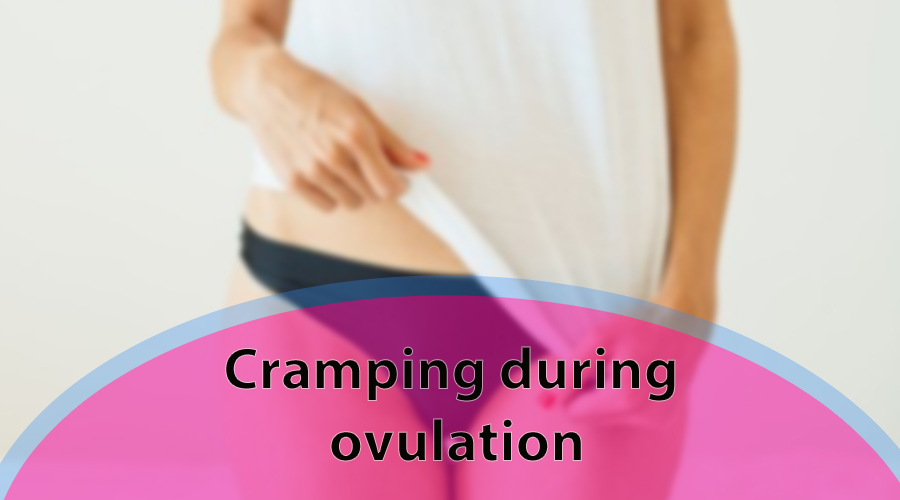Do you cramp during ovulation? If so, you are not alone. Many women experience cramping during this time in their cycle. Ovulation cramps can be mild to moderate and may last for a few hours or a day or two. In some cases, they can be quite painful. If you are experiencing cramping during ovulation, it is important to understand what is causing them and how to deal with them. In this blog post, we will discuss the causes of ovulation cramps and offer tips for how to manage them.
Table of Contents
Ovulation pain
Ovulation is when the ovary releases an egg. It usually occurs about 14 days before the start of a woman’s period. Most women ovulate for the first time between the ages of 12 and 18. The egg is released into one of the fallopian tubes, where it may be fertilized by a sperm.
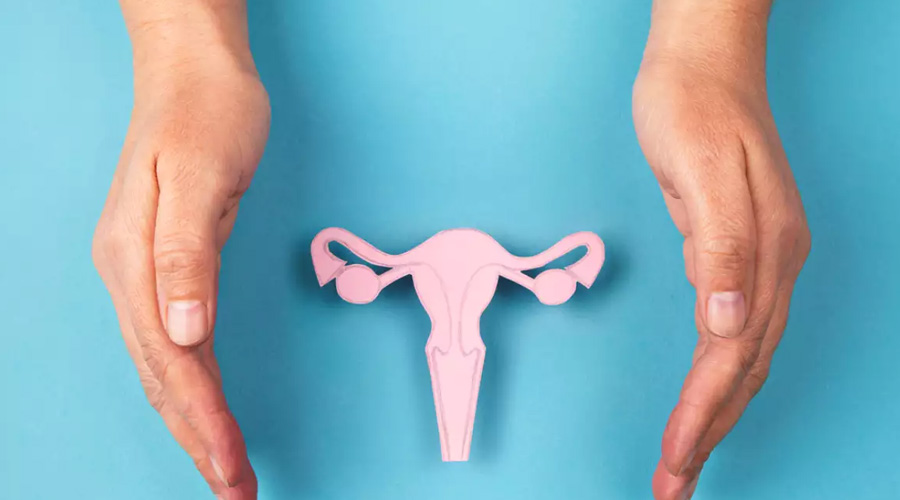
Ovulation cramps are caused by contractions in the muscles of the uterus. These cramps can be mild to moderate and may last for a few hours or a day or two. In some cases, they can cause severe ovulation pain.
What is ovulation pain?
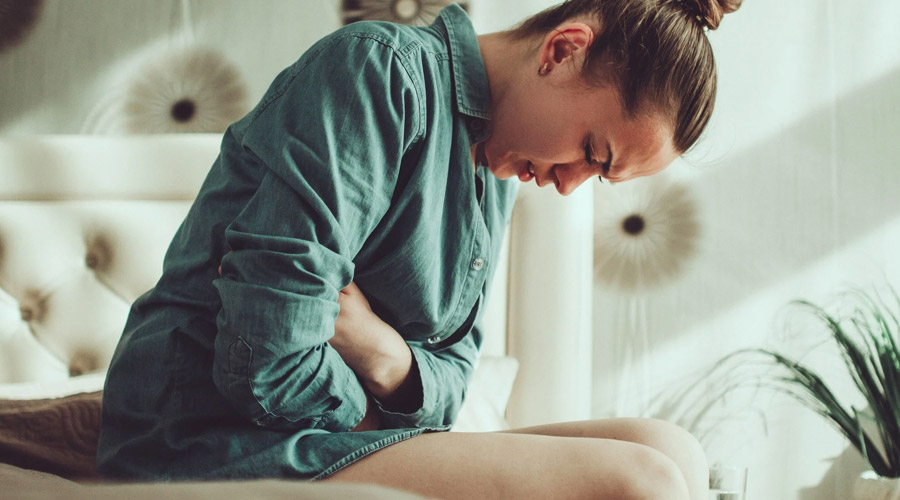
Ovulation pain is cramping that occurs during ovulation. It is caused by contractions in the muscles of the uterus. These cramps can be mild to moderate and may last for a few hours or a day or two. In some cases, they can cause severe pain.
Appendicitis, ovarian cysts, and ectopic (tubal) pregnancy can sometimes mimic ovulation pain, although pain from these conditions is typically much more severe.
How common is ovulation pain?

Ovulation cramps are common. Many women experience ovulation pain during ovulation. Medically reviewed, according to the website Patient, cramping during ovulation is common, with approximately 50 percent of women experiencing it.
Where does ovulation pain occur?
Ovulation cramps can occur and cause lower abdominal pain, the sides of the abdomen, Mittelschmerz (German for middle pain), pelvic pain, or the back. They may be mild to moderate and last for a few hours or a day or two. In some cases, they can be quite painful.

Ovulation cramps usually occur around the time of ovulation, which is about 14 days before the start of a woman’s period. They may be mild to moderate and last for a few hours or a day or two. In some cases, they can be quite painful.
Is ovulation pain the same as period pain?

No. Ovulation cramps are caused by contractions in the muscles of the uterus. Menstrual period pain or menstrual cramps are caused by contractions in the muscles of the uterus as well as bleeding from the lining of the uterus. Menstrual cramps often feel like a dull ache but cramping from ovulation is usually described as sharp or like a twinge or pinch.
Symptoms and causes
There are a number of symptoms and causes of ovulation cramps. The most common symptom is cramping in the lower abdomen, the sides of the abdomen, or the back. This cramping may be mild to moderate and last for a few hours or a day or two. In some cases, it can be quite painful.
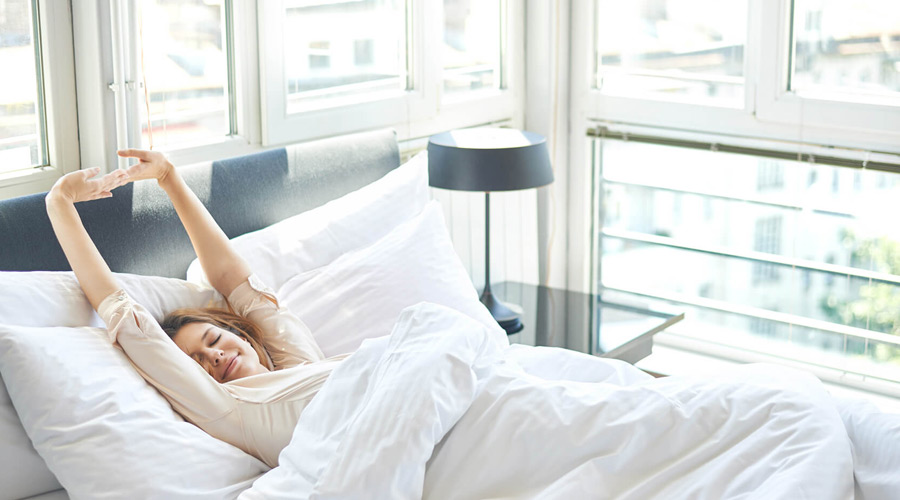
Other symptoms of ovulation cramps include:
- bloating
- nausea
- diarrhea
- headache
- dizziness
The cause of ovulation cramps is contractions in the muscles of the uterus. These contractions occur as the egg is released from one of the ovaries into one of the fallopian tubes. They are caused by changes in hormone levels that occur during ovulation.
What causes ovulation pain?
The most common symptom of ovulation cramps is cramping in the lower abdomen, the sides of the abdomen, or the back. This cramping may be mild to moderate and last for a few hours or a day or two. In some cases, it can be quite painful. Other symptoms of ovulation cramps include bloating, nausea, diarrhea, headache, and dizziness.

The cause of ovulation cramps is contractions in the muscles of the uterus. These contractions occur as the egg is released from one of the ovaries into one of the fallopian tubes. They are caused by changes in hormone levels that occur during ovulation.
What are the symptoms of ovulation pain?

The most common symptom of ovulation cramps is cramping in the lower abdomen, the sides of the abdomen, or the back. This cramping may be mild to moderate and last for a few hours or a day or two. In some cases, it can be quite painful. Other symptoms of ovulation cramps include bloating, nausea, diarrhea, headache, and dizziness.
How is ovulation pain diagnosed?
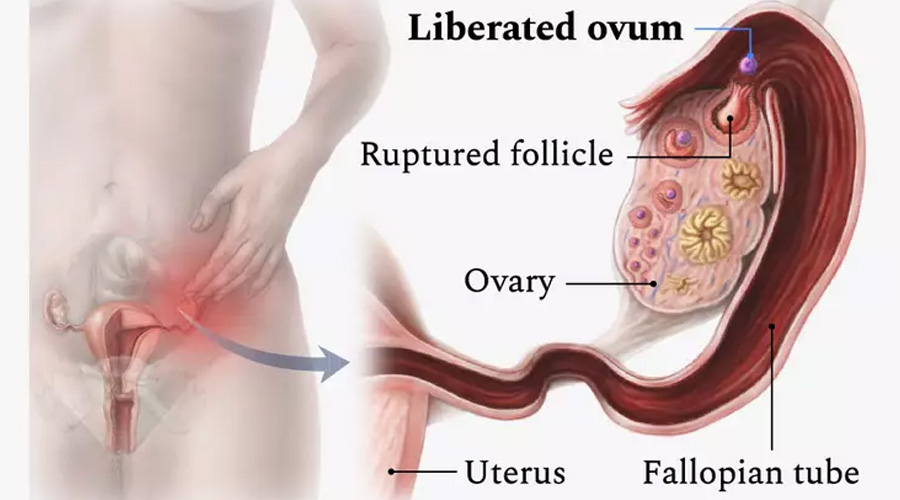
Ovulation cramps are diagnosed based on your symptoms. There is no specific test for ovulation cramps. Your healthcare provider will ask you about your symptoms and may do a physical exam. If they think that you may have ovulation cramps, they may order blood tests to check your hormone levels.
How is ovulation pain treated?
There are a number of things you can do to ease the pain if you are cramping during ovulation. Over-the-counter pain relievers such as ibuprofen or acetaminophen can help reduce cramping. You can also try placing a heating pad on your abdomen or lower back. If your cramps are severe, you may want to see your healthcare provider.

They can prescribe medication to help relieve the pain. When it comes to managing ovulation cramps, every woman is different. Find what works best for you and stick with it!
Can I prevent ovulation pain?
There is no sure way to prevent ovulation cramps. However, there are a few things you can do to reduce your risk. First, make sure to track your ovulation so that you know when it is happening. This will help you be prepared for the cramping. Second, take steps to reduce stress in your life. Stress can make cramping worse. Finally, eat a healthy diet and exercise regularly. These lifestyle changes can help to ease cramping during ovulation.

If you’re experiencing cramps during ovulation, there are a few things you can try to treat ovulation pain discomfort. Ibuprofen or acetaminophen, for example, may help reduce cramping. A heated pad on your belly or lower back might also help. If your pains are severe, you might want to visit your doctor. They may be able to prescribe medicine to assist with the discomfort. Every woman is different when it comes to dealing with ovulation cramps. Find out what works best for you and stick with it!
Inference
Ovulation cramps are a common symptom of ovulation. They are caused by contractions in the uterus and changes in hormone levels that occur during this time in the menstrual cycle. Ovulation cramps can range from mild to severe and may last for a few hours or a day or two. There is no specific test for ovulation cramps, but they can be diagnosed based on your symptoms.
Treatment for ovulation cramps includes over-the-counter pain relievers, a heating pad, and medication prescribed by your healthcare provider. There are a few things you can do to reduce your risk of getting ovulation cramps, including tracking your ovulation, reducing stress in your life, eating a healthy diet, and exercising regularly. Ovulation cramps are a common symptom of ovulation that every woman experiences at some point in her life.
FAQ
Does cramping during ovulation mean pregnancy?
No, cramping during ovulation is not a symptom of pregnancy. Cramping during ovulation is a normal part of the menstrual cycle and is caused by changes in hormone levels and contractions in the uterus. If you are cramping during ovulation and think you may be pregnant, take a pregnancy test to find out for sure.
How long after ovulation pain is the egg released?
The egg is released 24-48 hours after ovulation. cramping during ovulation is not a symptom of pregnancy. Cramping during ovulation is a normal part of the menstrual cycle and is caused by changes in hormone levels and contractions in the uterus. If you are cramping during ovulation and think you may be pregnant, take a pregnancy test to find out for sure.
Is it normal to have cramps before ovulation?
Yes, cramps before ovulation are normal. Many women experience cramps in the days leading up to ovulation. This is caused by changes in hormone levels and the release of the egg from the ovary. If you are cramping before ovulation and think you may be pregnant, take a pregnancy test to find out for sure.
Does ovulation pain happen before or during ovulation?
Ovulation pain can happen before or during ovulation. It is caused by changes in hormone levels and contractions in the uterus. If you are cramping during ovulation and think you may be pregnant, take a pregnancy test to find out for sure.
Why am I cramping a week before ovulation?
If you are cramping a week before ovulation, it could be a sign of an underlying medical condition. Talk to your healthcare provider if you are cramping but not ovulating so that they can check for any underlying medical conditions.
